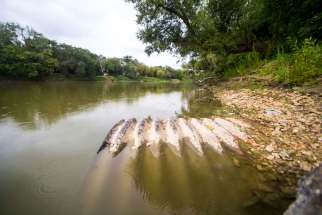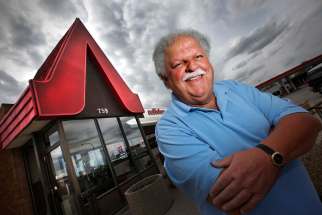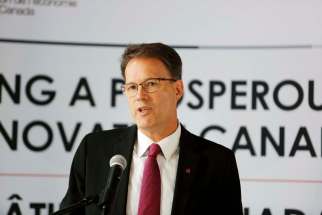All quiet on the sewage front: Liberal MP says federal money available to stem Winnipeg’s fetid flow
Read this article for free:
or
Already have an account? Log in here »
To continue reading, please subscribe:
Monthly Digital Subscription
$0 for the first 4 weeks*
- Enjoy unlimited reading on winnipegfreepress.com
- Read the E-Edition, our digital replica newspaper
- Access News Break, our award-winning app
- Play interactive puzzles
*No charge for 4 weeks then price increases to the regular rate of $19.00 plus GST every four weeks. Offer available to new and qualified returning subscribers only. Cancel any time.
Monthly Digital Subscription
$4.75/week*
- Enjoy unlimited reading on winnipegfreepress.com
- Read the E-Edition, our digital replica newspaper
- Access News Break, our award-winning app
- Play interactive puzzles
*Billed as $19 plus GST every four weeks. Cancel any time.
To continue reading, please subscribe:
Add Free Press access to your Brandon Sun subscription for only an additional
$1 for the first 4 weeks*
*Your next subscription payment will increase by $1.00 and you will be charged $16.99 plus GST for four weeks. After four weeks, your payment will increase to $23.99 plus GST every four weeks.
Read unlimited articles for free today:
or
Already have an account? Log in here »
Hey there, time traveller!
This article was published 30/07/2019 (2324 days ago), so information in it may no longer be current.
In short, Winnipeg has to raise a stink about its sewage.
Winnipeg's sewage-filled rivers no place for splashy, pricey politics, it seems
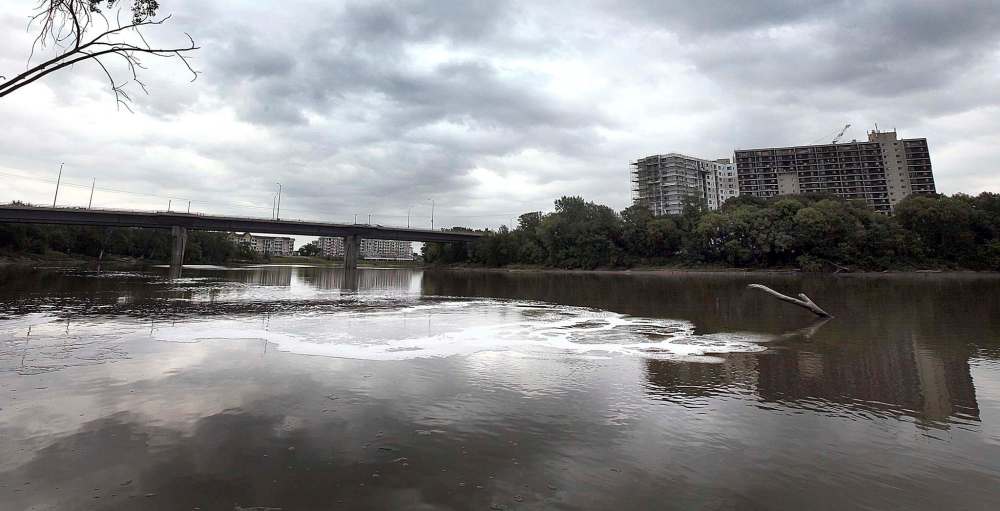
Posted:
More than eight billion litres of diluted raw sewage poured into Winnipeg rivers last year from the city’s combined sewer system, according to new data released by city hall.
That’s the advice of Winnipeg South MP Terry Duguid, who responded Tuesday to a report that more than eight billion litres of diluted raw effluent spilled from the city’s aged combined sewer system into its rivers in 2018.
Duguid said the federal government is making a record amount of funding available for environmental infrastructure, but neither city hall nor the province has applied for any of it to offset the costs associated with billion-dollar sewer upgrades.
“These issues have concerned me for several decades,” said Duguid, whose career before being elected MP in 2015 included six years as a Winnipeg city councillor (1989-95) and four years (2000-04) as chair of the Manitoba Clean Environment Commission.
Ottawa has made $1 billion available for infrastructure projects, with $400 million of that targeted for environmental projects, he said.
“I’d certainly like to see those funds used for better water treatment, as well as renewing some of that old infrastructure that is causing some of our pollution problems,” he said.
Duguid was responding to a Free Press story Monday that reported 8.65 billion litres of diluted raw sewage — the equivalent of 3,462 Olympic-sized swimming pools — spilled into Winnipeg’s river system in 2018, up from 6.6 billion litres in 2017.

!function(e,t,s,i){var n=”InfogramEmbeds”,o=e.getElementsByTagName(“script”)[0],d=/^http:/.test(e.location)?”http:”:”https:”;if(/^/{2}/.test(i)&&(i=d+i),window[n]&&window[n].initialized)window[n].process&&window[n].process();else if(!e.getElementById(s)){var r=e.createElement(“script”);r.async=1,r.id=s,r.src=i,o.parentNode.insertBefore(r,o)}}(document,0,”infogram-async”,”https://e.infogram.com/js/dist/embed-loader-min.js”);
The spillage is generated predominantly by one-third of the city’s underground sewage system — an antiquated, combined pipeline that carries rainfall runoff and sewage. Under normal conditions, the combined sewer system flows into the city’s water-treatment facilities, but when there is heavy rainfall, the rainwater-diluted waste is redirected into the Red and Assiniboine rivers from 77 different outlets across Winnipeg.
The city has a long-range plan to replace the combined lines. The plan approved by the province in 2017 will improve the current sewage capture from 74 per cent to 85 per cent by 2045, at a cost of $1.2 billion.
The province has also directed city hall develop a plan by 2030 to increase its sewage capture to 98 per cent.
City council approved $31.1 million on sewer-line separation this year — mostly for the Calrossie project, adjacent to the Parker lands, but that work was put on hold in the spring when the bids for construction came in almost 50 per cent higher than budget estimates.
However, for the previous four years, approved annual budgets for new sewer-line separation averaged only $19.5 million.
In addition to the $1.2 billion price tag to deal with combined sewers, city hall is also facing a $1.6 billion cost to upgrade the North End sewage treatment plant.
But civic officials have not formally asked Ottawa to help cover the cost of those projects. Instead, successive councils and administrations have targeted roads, railway underpasses and a transit corridor to benefit from federal and provincial funding.
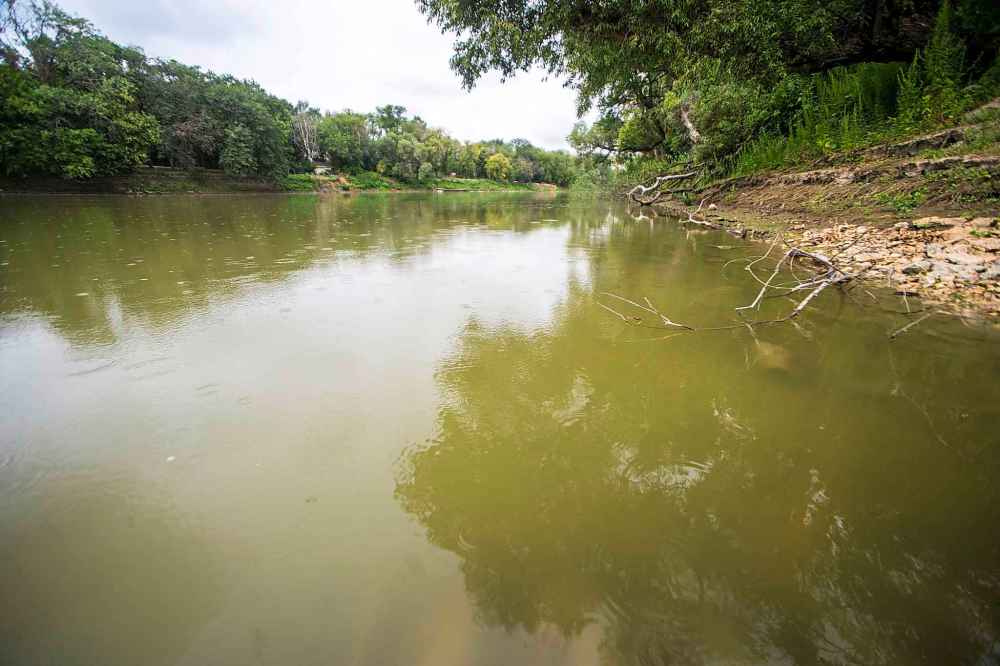
The city did not respond Tuesday to a request for an interview with an official from the water and waste department to account for the 2018 spillage data and the progress to date on separating combined sewers.
Duguid said sewage spillage into the rivers eventually flows into Lake Winnipeg and he, and the federal government, have made saving the lake a priority.
“We should prioritize these issues,” he said, explaining that Lake Winnipeg is responsible for $200 million annually from tourism, $20 million from fishing and hundreds of millions of dollars in recreational properties.
While Ottawa has allowed provinces and municipalities to determine their own spending priorities for the current infrastructure spending program, Duguid said he would like to see the federal government take a more hands-on approach in the next phase.
“There really is a lot at stake," he said. "We need to scale up our efforts on Lake Winnipeg, and that really means tackling pollution from its sources.”
aldo.santin@freepress.mb.ca







